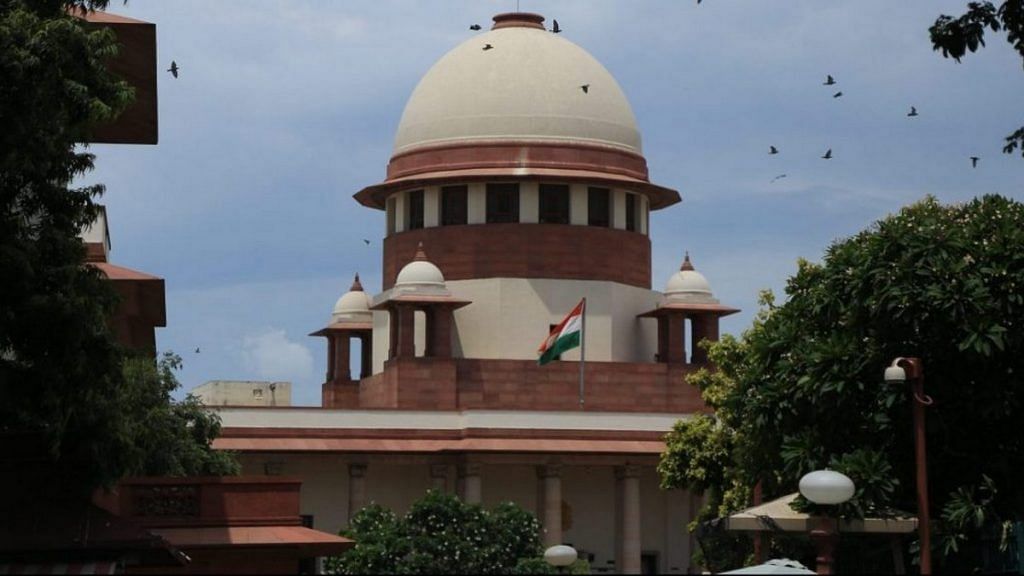New Delhi: The Uttar Pradesh government Friday told the Supreme Court that it will continue to allow travel only for essential services to and from Delhi since the source of infection in 45 per cent of Covid-19 cases in Noida and Ghaziabad were tracked to the national capital.
Garima Prashad, lawyer for the Uttar Pradesh government, said, “Considering extreme health parameters…we have restricted the movement. As of now we have allowed movement of paramedical and medical…traffic of goods, advocates and media…we are giving out emergency e-passes.”
The court was hearing a plea filed by Gurgaon resident Rohit Bhalla last month, through advocates Anindita Mitra and Aman Bhalla, demanding Delhi-NCR be considered a single region and the capital city’s borders with Noida, Ghaziabad, Gurugram and Sonipat be opened.
The bench comprising Justices Ashok Bhushan, Sanjay Kishal Kaul and M.R. Shah was informed by Solicitor General Tushar Mehta Friday that the Delhi and Haryana governments have resolved the issue.
The bench was also told that the governments of Uttar Pradesh, Haryana and Delhi had conducted a joint meeting on 9 June, as directed by the court last week.
The apex court had, on 4 June, asked all three governments to sit with the central administration and explore the possibility of “one policy, one path or one portal” for movement within Delhi-NCR amid the nationwide lockdown.
Petitioner Bhalla, represented by senior advocate Mukul Talwar, had asserted that it was unconstitutional for the Uttar Pradesh and Haryana administrations to restrict movement for permissible activities in areas falling within NCR through “blanket orders of sealing borders without reasonable exceptions”.
It had, therefore, challenged the decisions of Haryana, Uttar Pradesh and Delhi governments to restrict movement of individuals and the requirement of applying for movement passes for each of these states on various state government portals.
Also read: People with medical emergencies can enter Delhi with e-pass, AAP govt tells HC
Court seeks response on mandatory institutional quarantine
During the hearing Friday, Prashad also said “health parameters that exist in Delhi” have forced authorities in Uttar Pradesh to take such a decision.
She pointed out that while Delhi has a population of 2 crore, Noida and Ghaziabad together have a population of 50 lakh.
Prasad also referred to data on Covid-19 cases and deaths in Delhi, saying that while the capital city has over 33,000 cases and over 1,000 deaths, Noida and Ghaziabad together have only 1,000 cases and 40 deaths.
The lawyer also informed the top court that while Delhi has allowed home quarantine to curb the virus’ spread, Noida and Ghaziabad administrations have made institutional quarantining mandatory.
But the court took strong exception to the Noida DM’s order making institutional quarantine for all Covid-19 cases, including asymptomatic people, compulsory. Asserting that such an order cannot be issued since it is against the national guidelines, the bench sought a report on this issue from the Uttar Pradesh government.
The matter will next be heard on 17 June.
Also read: By sealing Delhi NCR borders, Covid has ended fluidity between where labourers live and work
